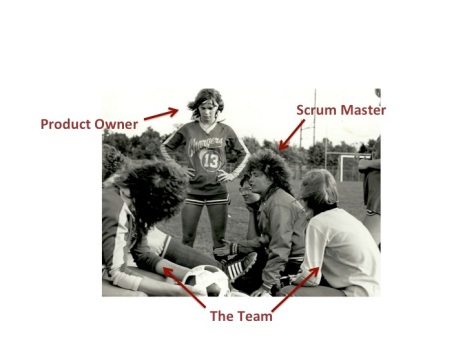Every thing I needed to know about being a good Scrum Master I learned from my high school soccer coach, Miss Lonegan.
Here’s what was instilled in me on a muddy soccer field in the early 1980s.
Great coaches and leaders:
- Motivate and help the team to be successful.
- Walk with the team, on the field, everyday.
- Teach others the process by sharing fundamental tasks and techniques.
- Guide the team without being overly controlling.
- Communicate positively.
These successful actions and traits recently dawned on me when I realized how important Personality and Temperament are to being an effective Scrum Master.
Over the past 5 years, I have been observing team dynamics as a Scrum Master (SM) on multiple teams in 3 different companies and have witnessed a number of SMs crash and burn due to not leading like good coaches. Lack of communication and soft skills were also a common theme with the ineffective Scrum Masters.
The most successful SMs are true team players and are comfortable surrendering control to the Product Owner and team. Adept Scrum Masters truly view their role as being in service to the team, removing obstacles for the team and helping them to be successful.
Facilitation is another important role of the Scrum Master and requires a high level collaboration and strong, tactful communication skills. The authoritative, directive, ” my way or the highway ” approach does not work well with Scrum teams.
Project Managers can sometimes get away with a lack of soft skills but Scrum Masters, who are facilitators and coaches, cannot.
In the Retrospectives with our team, I ask them to think about the Results, the Experience and the Process of Agile and the sprint. I view my Scrum Master role as critical to helping the team to not only achieve great results (velocity) but to enjoy the experience and the process- just like my high school soccer coach did all those years ago!


Pingback: Building a Book with Agile – Strong Words & Simple Truths